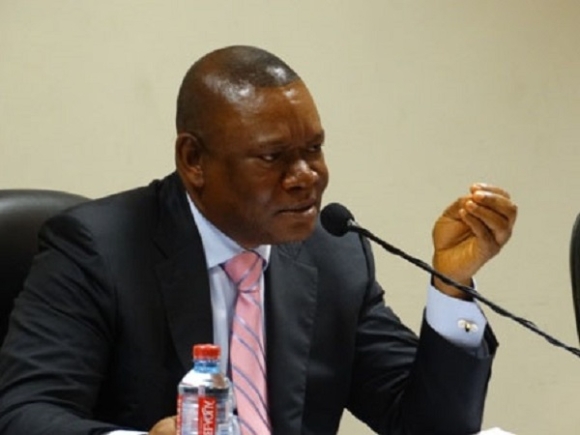Vetting: Justice Dzamefe backs AI and virtual courts
Vetting: Justice Dzamefe backs AI and virtual courts to tackle delays in Ghana’s justice system

Justice Senyo Dzamefe, a Court of Appeal Judge and nominee to the Supreme Court, has proposed the use of artificial intelligence and virtual court systems as part of wide-ranging measures to address delays in Ghana’s justice system
He made the comment during his vetting by Parliament’s Appointments Committee on Monday, June 16, 2025.
Justice Dzamefe told the Committee that introducing more courts and incorporating technology would help clear the growing backlog of cases and bring faster resolution to matters that affect ordinary citizens.
“We need more courts to spread the workload and make justice faster,” he said in response to a question.
He further argued for real-time court audio and video records using AI to produce instant transcriptions.
“By the end of a court sitting, records should be ready,” he said, adding that virtual hearings could help reduce transportation costs for litigants and legal officers alike. He proposed fixed durations for court cases: three months for criminal matters and six months for civil disputes.
On the issue of property disputes, which frequently affect families, Justice Dzamefe responded to a question from MP Alhassan Sayibu Suhuyini by explaining the courts’ role in such matters.
He said the courts intervene to ensure fair provision, especially during divorce proceedings. Jointly acquired property is shared equitably, he noted, while inheritance cases are handled under PNDC Law 111 or according to valid wills, with the courts protecting the interests of surviving spouses.
Touching on the subject of public tribunals, Justice Dzamefe answered Patrick Yaw Boamah’s question by saying that these bodies could bring justice closer to the people.
He stressed that the contribution of lay persons in adjudicating cases should not be underestimated. “Law is 20% technical knowledge and 80% wisdom. Lay people bring wisdom to cases and cannot be bullied,” he said, explaining that community members can offer fair and practical perspectives in resolving disputes.
Justice Dzamefe also spoke candidly about the financial limitations of the judiciary. Responding to MP Hassan Tampuli, he said that although the judiciary is constitutionally independent in legal and administrative matters, its financial autonomy remains lacking.
“Judicially and administratively, we are independent. Financially, I don’t think we are, because Parliament allocates our budget,” he said, suggesting that the current funding arrangement undermines the judiciary’s capacity to serve the public efficiently.
With extensive experience as a High Court judge in Sekondi, Swedru, and Accra, and having served as President of the Association of Magistrates and Judges, Justice Dzamefe brings years of courtroom and administrative insight to his new role, should he be confirmed.



